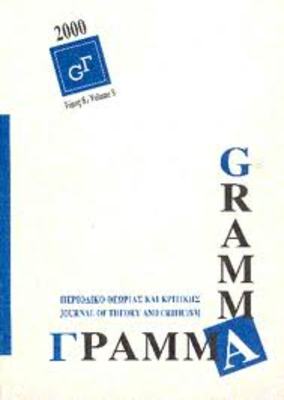The challenge of neo-dramatic writing in the Anglo-Saxon theater
Part of : Γράμμα : περιοδικό θεωρίας και κριτικής ; Vol.17, No.1, 2009, pages 91-108
Issue:
Pages:
91-108
Section Title:
Re-positioning the dramatic
Author:
Abstract:
With the establishment in the theater of the director-auteur, reversing the traditional roles of "author-supreme text" and "author-servile performance" has advanced startling forms of writing. In the 1990s, dramatic writing re-emerged from its prior state of hibernation and lethargy, claiming the right to exist on stage not merely as an employee to the performance text, but as a powerful partner to the director's creative expression. Thus the emergence of a certain type of neo-dramatic writing within the Anglo-Saxon literary canon comes to fill up the need for dramatic language to reveal its performative potential and for new texts for the stage, which dare reinvent theatrical form in order to capture some of the ambiguity, subversion and indeterminacy contained in post-twentieth-century sensibilities. The "reformation" of dramatic writing, an "écriture" enriched with the potentialities of the stage, reveals the ongrowing need for the theater's return to the text as well as a need for a strong narrative as a point of departure for performance. Essentially, in neo-dramatic writing textual primacy is restored after having been percolated through performance considerations. At the same time, the neodramatists' emphasis is on how to grant back to language its immediacy, after many years of clichéd usage.
Subject:
Subject (LC):
Keywords:
δραματουργία
Notes:
Περιέχει βιβλιογραφία




